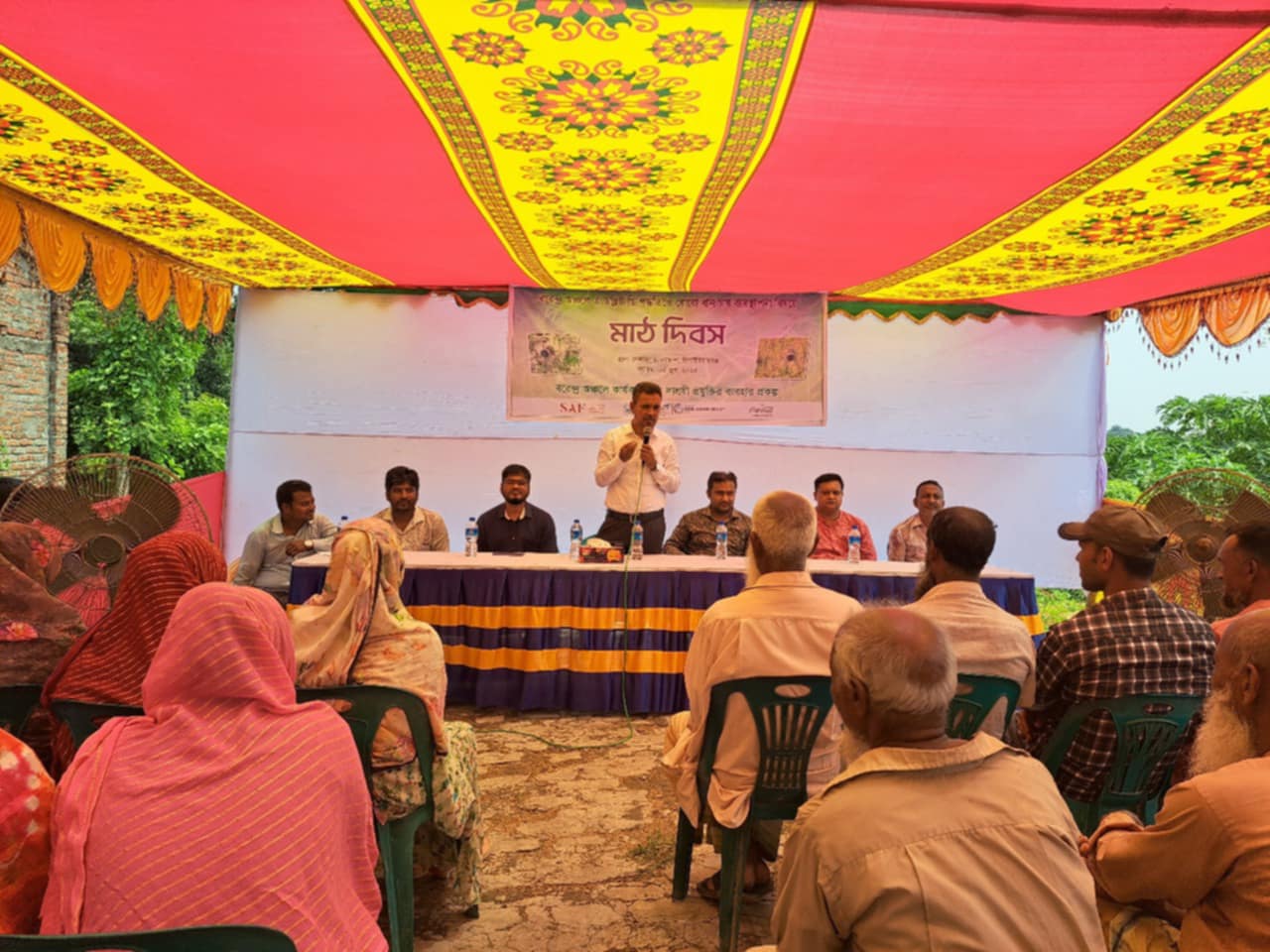

Durgapur correspondent : A successful Farmers Field Day (FFD) was held at Nezampur in Nachole Upazila under Chapainawabgonj district to demonstrate the benefits of the Alternate Wetting and Drying (AWD) irrigation method in Boro rice cultivation. The event was organized under the Sustainable Agriculture Foundation Bangladesh and saw active participation from agricultural stakeholders, project officials, and local farmers.
The program was attended by Upazila Agriculture Officer (UAO) Md. Soleh Akram, Deputy Project Director (DPD) SM Aminuzzaman of RDADP, SAAO Md. Abdur Nur of the Department of Agricultural Extension (DAE), and Engineer Md. Yusuf Ali of Barind Multipurpose Development Authority (BMDA). Project Manager Md. Shohidul Islam, Md. Forhanul Haque, and project Officer Samir Roy from the Sustainable Agriculture Foundation also participated in the event.
During the field day, UAO Md. Soleh Akram stressed the importance of AWD in addressing water scarcity in the Barind Tract. This region is already under water stress. Implementing the AWD method in Boro rice cultivation is essential for sustainable water use,” he noted.
DPD SM Aminuzzaman pointed out the high water demand in rice farming. “On average, farmers use approximately 2-3,000 liters of water to produce just 1 kilogram of rice. This is alarming. By adopting the AWD method, farmers can save up to three irrigations per season, resulting in a cost saving of around Tk. 750 per bigha,” he explained.
BMDA Engineer Md. Yusuf Ali highlighted growing concerns over the depletion of groundwater in the region. “The water table is declining rapidly. For instance, in 2022, the groundwater level in Nezampur was recorded at 105 feet, whereas in 2025 it has dropped to 140 feet,” he said, emphasizing the urgency of water-saving technologies.
Project Manager Md. Shohidul Islam stated that the demonstration plot owner achieved an additional 1.5 maunds of yield from 33 decimals of land while saving three irrigation cycles. This clearly shows the effectiveness of the AWD method, which we should adopt widely in the Barind Tract to conserve water for use in other crops.
Farmer Sish Mohammad shared his experience with AWD, reporting a yield increase of 1.5 maunds (about 60 kg) per bigha compared to the control plot. His testimony underscored the dual benefits of the AWD method—higher productivity and lower irrigation costs.
The event concluded with a live field demonstration, drawing the interest of many local farmers. Experts encouraged them to adopt AWD to conserve water, reduce production costs, and enhance resilience to climate variability.
Alternate Wetting and drying method is implementing jointly with Agricultural Development project for Rajshahi Division through the expansion of Modern Technology Project for wider expansion under the Department of Agricultural Extension (DAE)i and it is coordinated by the 2030 Water Resource Group and Sustainable Agriculture Foundation and financed by The Coca-Cola Foundation।

